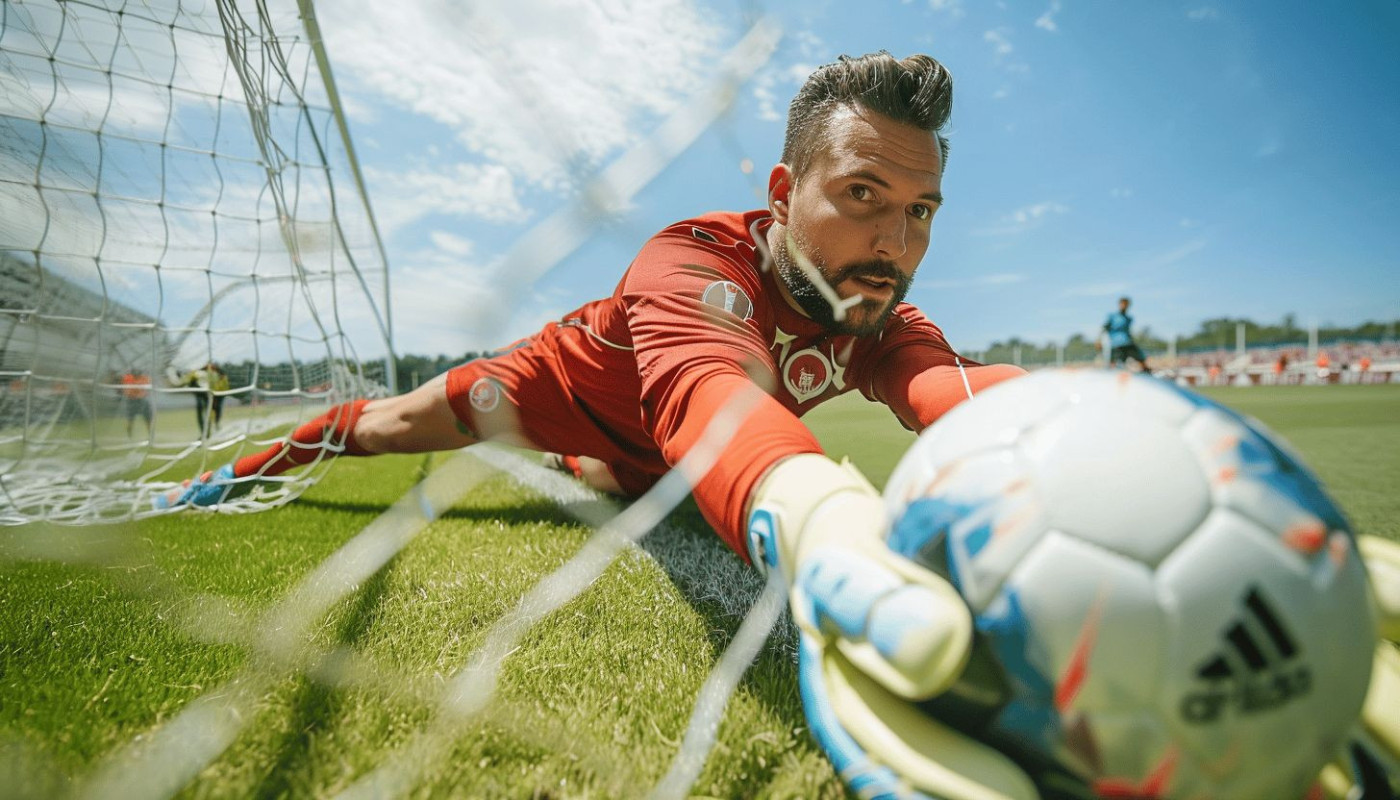Table of contents
The relentless pursuit of excellence in sports often focuses on training and performance, but what happens after the event can be just as critical. Recovery science plays a pivotal role in an athlete's routine, directly impacting their ability to perform consistently at high levels. Dive into the fascinating world of post-event recovery strategies, where optimizing rest, nutrition, and mental well-being isn't just a recommendation—it's a necessity for peak performance. Continue reading to uncover the intricate details that can give athletes the competitive edge they need through effective recovery protocols.
The Significance of Proper Recovery
The realm of competitive sports continually evolves, bringing to the forefront the significance of proper recovery as a cornerstone for an athlete's career longevity and vitality. Athlete recovery is not a luxury, but a foundational element for those seeking to maximize their athletic potential. Injury prevention stands as one of the most compelling reasons to prioritize rest and recuperation. When athletes are given the time to properly recover, the body repairs itself, reducing the risk of overuse injuries and stress-related damage.
Performance enhancement is another pivotal benefit of structured recovery protocols. Post-event rest allows the body to replenish energy stores and repair muscle tissue, which in turn, equips athletes to perform at their peak during subsequent training sessions and competitions. Moreover, the psychological impacts of recovery are equally profound, as mental fatigue can impair judgment and reaction times, potentially leading to decreased performance and increased injury risk.
Recovery is not a monolithic concept; it is an intricate blend of physiological and psychological restoration. Athlete recovery must be carefully woven into the fabric of an athlete's routine, with recovery protocols being as meticulously planned as the training itself. The technical term "periodization" is pivotal in this planning process, referring to the strategic structuring of workout and recovery phases to optimize an athlete's performance cycle.
The insights of a sports scientist or a high-performance coach specializing in athlete recovery are invaluable in understanding the complexities of post-event rest. These professionals can attest to the necessity of incorporating recovery strategies that align with the individual needs of the athlete, taking into account the nuances of their specific sport and their body's responses to different recovery methods. By embracing the science behind athlete recovery, individuals can protect their health, enhance their performance, and, crucially, extend their careers in the demanding world of competitive sports.
Nutritional Strategies in Recovery
Within the sphere of athletic performance, recovery nutrition emerges as a pivotal element in the recuperation of an athlete post-exertion. A meticulously devised nutritional plan is instrumental in facilitating muscle repair, ensuring a swift replenishment of energy stores, and aiding in the reduction of inflammation. The synchronization of macronutrient intake, commonly referred to as macronutrient timing, can markedly accelerate the recovery process. Carbohydrates play a significant role here, particularly in the context of glycogen resynthesis, which is the restoration of the body's primary energy reserve depleted during strenuous activity. The expedited intake of carbohydrates following an event can greatly enhance this process.
Nutritionists with a focus on sports emphasize that the window immediately following exertion is a critical period for nutrient absorption. Implementing effective hydration strategies is equally pivotal, as rehydration is vital for restoring fluid balance and assisting metabolic functions post-event. The consumption of fluids, electrolytes, and specific nutrients can drastically improve an athlete's ability to recover and prepare for subsequent training or competition. In this context, the guidance of a sports nutritionist or dietitian experienced in athletic performance can be invaluable, providing tailored advice that aligns with the physiological demands and recovery needs of the individual athlete.
Rest and Sleep's Role in Recovery
The interplay between rest and recovery in the athletic context is profound, with sleep being a cornerstone for optimal performance. Scientific evidence consistently underscores the influence of both sleep quality and quantity on muscle recovery, hormonal balance, and cognitive function. A well-rested athlete benefits from improved muscle repair, as sleep facilitates protein synthesis and releases growth hormone, vital for rebuilding tissues strained during physical exertion. Equally, restful sleep is paramount in maintaining hormonal balance, ensuring levels of cortisol, often elevated by stress and exercise, are regulated.
Moreover, cognitive function, critical for strategic thinking and reaction times in competitive environments, is significantly enhanced by adequate slumber. To harness the full benefits of sleep and recovery, athletes are advised to prioritize not only the duration but also the quality of their sleep. Strategies for optimizing sleep patterns may include adhering to a consistent sleep schedule and cultivating a pre-sleep routine that promotes relaxation.
Creating a sleep environment conducive to rest involves considerations such as temperature control, noise reduction, and minimizing light exposure. Attention should also be given to sleep architecture, which refers to the different stages of sleep, including REM and deep sleep phases, each playing a unique role in the recovery process. Insights from a sleep specialist or a sports medicine doctor offer the greatest authority on tailoring post-event routines to maximize recovery, emphasizing the irreplaceable role of sleep in an athlete's performance toolkit.
Mental Recovery and Psychological Resilience
While physical recuperation garners significant attention in athletic training, the psychological aspect of recovery is often less emphasized yet remains a vital component of an athlete's overall wellness. Techniques that foster mental rest and contribute to the development of psychological resilience are paramount for those seeking to optimize their post-event routines. Incorporating practices such as mindfulness for athletes, meditation, and visualization can greatly assist in managing stress levels and enhancing mental preparedness for future competitions. These strategies not only support athletes in navigating the pressures of their sport but also in achieving a state of psychophysiological recovery, acknowledging the intricate mind-body connection critical to their recuperation process.
Engaging in mindfulness can help athletes remain present and focused, reducing the distracting noise of anxiety and external expectations. Meanwhile, meditation offers a structured approach to relaxation, enabling individuals to reach a state of calm and clarity. Sports visualization techniques, when employed regularly, can sharpen an athlete's competitive edge by mentally rehearsing successful outcomes, thus boosting confidence and readiness. A sports psychologist, especially one who specializes in mental training for athletes, would be a highly suitable authority to provide insights into these methods, which are not merely supportive but necessary for an athlete’s sustained high performance and long-term well-being.
Active Recovery and Cross-Training
Integrating active recovery and cross-training into an athlete's post-event routine offers a multitude of benefits that aid in physical recuperation and performance sustainability. Active recovery, which includes light physical activity, plays a pivotal role in facilitating blood flow and recovery. This method helps to alleviate muscle soreness and accelerates the removal of metabolic waste produced during intense exertion. By engaging in activities such as swimming or cycling at a low intensity, athletes can maintain a base level of fitness while simultaneously promoting recovery.
Moreover, cross-training for athletes enables the stimulation of different muscle groups, which can prevent repetitive strain injuries often associated with specific sports. This variety in training not only contributes to an enhanced recovery by allowing primary muscle groups to rest but also develops overall athletic abilities. The key, however, lies in finding the right balance between rest and active recovery to avoid overtraining. Too much activity can lead to fatigue and decreased performance, whereas insufficient recovery might not fully prepare the body for the next bout of physical stress.
Understanding the concept of "deloading" is vital in this context. Deloading refers to the strategic reduction of training load, allowing the body to recover while still engaging in lower-intensity workouts. This approach ensures that athletes do not lose the gains made from previous training while recovering. Expert guidance from a strength and conditioning coach or a physiotherapist is invaluable in designing a customized recovery plan that incorporates these principles effectively. They can provide the necessary oversight to ensure that active recovery and cross-training are being utilized optimally, thus safeguarding against the pitfalls of overtraining and enhancing overall athletic longevity.
On the same subject

Effective Strategies For Promoting Charity Golf Tournaments Online

Which sporting events do most people bet on ?

Maximizing Your Welcome Bonus: Strategies For First-Time Casino Depositors

Impact Of Tactical Contexts On A Defender's Performance Analysis

